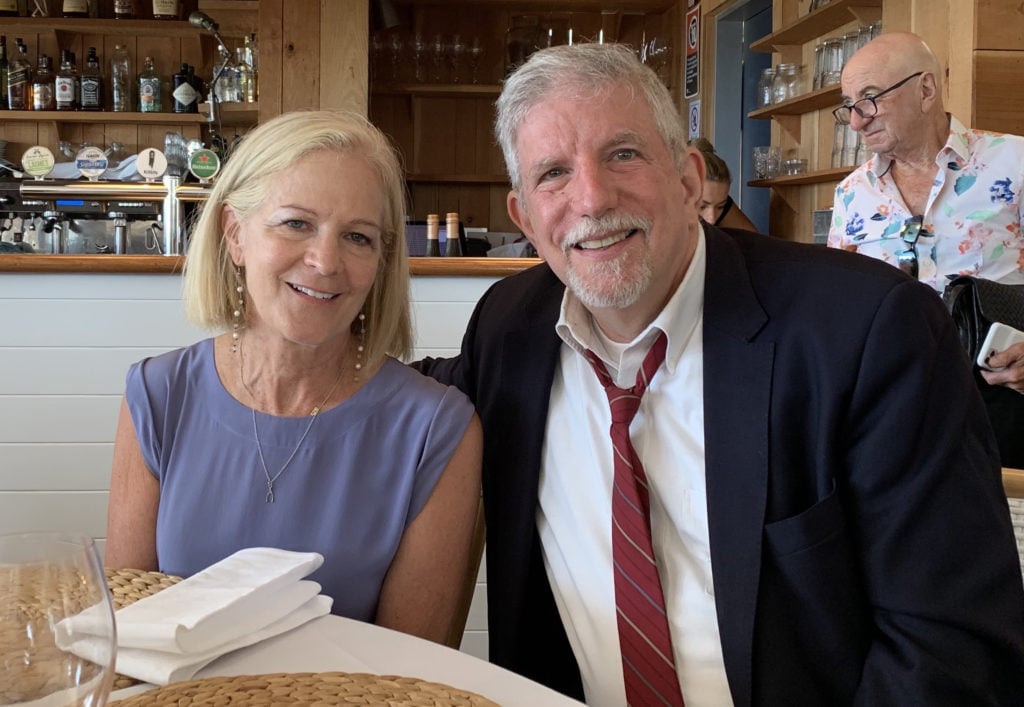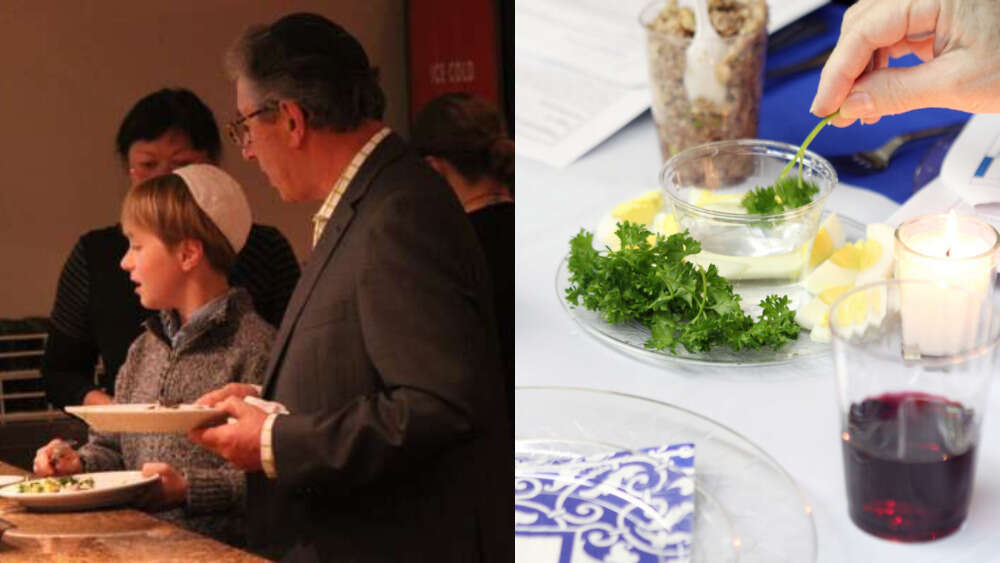This year the Easter season overlaps with the Jewish holiday of Passover. For a Messianic Jew, that means a time of extra celebration!
Passover is the annual holiday when Jews remember the Exodus of their people from slavery in Egypt. This year it begins before sundown on Wednesday, 5 April and ends after nightfall on 13 April.
So why celebrate Passover when you believe in the resurrected Jesus Christ as Messiah, who rescued us from slavery once and for all? Well, for Jewish people this holiday, originally titled “The Lord’s Passover”, is a key part of our identity. Wishing a Jewish person a “Happy Passover” is tantamount to affirming that they are Jews. And giving your Jewish mate a Passover gift would let them know that being Jewish is not a sin from which they need to repent, but rather a great privilege. After all, the message of the gospel was first given to Jewish people.
Why celebrate Passover?
I’m 71 years old and have celebrated Passover throughout my whole life. I grew up in Kansas City in the middle of the USA and have lived the past 25 years in Sydney. It hasn’t mattered where I was living or visiting, Passover is the most celebrated Jewish holiday for me and my family.
It’s not about the food, although it is abundant, and for many, it’s not about the religious ceremony. It’s not the over-sweet Passover wine or the longer-than-necessary prayers and reading of the script. What happens during the holiday is the release of a sort-of homing device, such as happens in New South Wales during March as the Rugby League season begins. It’s similar to hearing the sounds of your national anthem being played while someone you don’t know is standing on the dais during the Olympics. There’s a feeling we call ‘hamishe’ in Yiddish – a feeling of home. That sentiment which drove Odysseus until he reached home and E.T. to ‘phone home’ is the hamishe feeling.
What happens during the holiday is the release of a sort-of homing device.
And that’s what I feel as I approach the holiday again. My parents have been gone for 17 years; my brother died years ago. So Passover is an important way to fulfil my desire to live in hamishe reality. The songs don’t change year to year. The food tastes the same; the jokes – we could finish each other’s stories before they start. We are home again.
These days tradition is much more important to most Jewish people than the Scriptures. Most Jewish people would not seriously knock back the constitutional reality of what Moses or Isaiah wrote. In fact, most Jewish people today would say that the Scriptures are relevant, even though they would not consider them authoritative or inerrant. They think the Bible is a good story, and the Exodus from Egypt was significant. And that forms the basis of the continuing Passover celebrations.
The shortcomings of Passover
Most of my people would have some argument with the actual biblical story. They might disclaim the possibility of the ten plagues, saying Moses got lucky or knew the secrets of Egyptian folklore. They would say things like, “the parting of the Red Sea didn’t actually happen. One, it wasn’t the Red Sea at all, and then secondly, the rendering of the movies like the one with Christian Bale (Exodus: Gods and Kings, 2014) where his feet were soaking wet, was more in line with reality” or “Miracles are not part of the normal Jewish conversation; Moses and the Red Sea just couldn’t have happened.”
Only by living in his promises and in relation to the Almighty and Yeshua the Messiah will Jewish people find the best hamishe feeling ever.
But that dismissal of the ongoing possibilities of a God-who-overrides is what has caused my people to miss so much in history. Abraham’s wife Sarah laughed in disbelief when the angel communicated about God overriding her 90-year-old body’s limitations. Moses dismissed his own allegiance of faith in striking a rock instead of speaking to it, as God had instructed. His lack of faith prevented his entry into the Promised Land. Saul let his own cleverness override God in sparing Agag and the best of the conquered treasure, while disobeying the clear command to rid Israel of the Amalekites. God wanted to override the situations of the people; those who trusted him would live in his pleasure. And continue to celebrate the God of history and the God of the Exodus. The God who overrides. He’s the God of the super-natural (extra-ordinary: above the normal).
Only by living in his promises and in relation to the Almighty and Yeshua the Messiah will Jewish people find the best hamishe feeling ever.
The need for Easter
The stories of Passover and its Christian counterpart, The Passion/Resurrection Day, teach us much more. Passover features the stories of God sparing the Jewish firstborns in Egypt and bringing his people out of slavery. They are God-who-overrides. This being is reflected in the deliverance Yeshua (Jesus) offers to all who put their trust in him. He died at the hands of the Romans and his execution was permanent. They buried him. He was a goner. And yet, he arose from the dead. That’s extra-ordinary! That’s the God-who-overrides. We are delivered by Yeshua from sin and death. Egypt then represents our bondage, our inability to find eternity, our failures to find grace and mercy to help in times of need.
Thus, if we trust Messiah Yeshua, we are set free from the bondage (Romans 8:2, 8:21) of our personal Egypt and brought into the light of the Kingdom (Colossians 1:13) of God’s beloved Son. The new covenant is better than the old covenant on so many levels: a better name, a better priesthood, better blood, better conditions, better promises, and on and on. Leaving Egypt was awesome. Crossing the Red Sea was God’s power-made-manifest to the Hebrews.

Bob and Patty Mendelsohn
Then God led the Jewish people to the Promised Land and we experienced his hand in all our ways. We found ‘home’ and that hamishe feeling. Only by living in his promises and in relation to the Almighty and Yeshua the Messiah will Jewish people find the best hamishe feeling ever. It’s not the four cups of wine; it’s not grandmother’s matzo ball soup. It’s in finding our Elder Brother, Messiah Yeshua of whom the prophets wrote that we find home.
Easter is a Jewish story – the crucified Messiah, the Son of God, the (Passover) Lamb of God, who dies on Passover, is buried and rises from the dead on the Jewish holiday of First Fruits (Exodus 34, Leviticus 23, 1 Corinthians 15). It’s the story of redemption from something far worse than Egyptian slavery. We are saved from sin and death. And translated into the kingdom of God’s dear Son. Hallelujah, what a Saviour!
Bob Mendelsohn is the National Director of Jews for Jesus in Australia. For more information, visit jewsforjesus.org.au.
This is an amended version of a previous article by Bob.
Email This Story
Why not send this to a friend?



